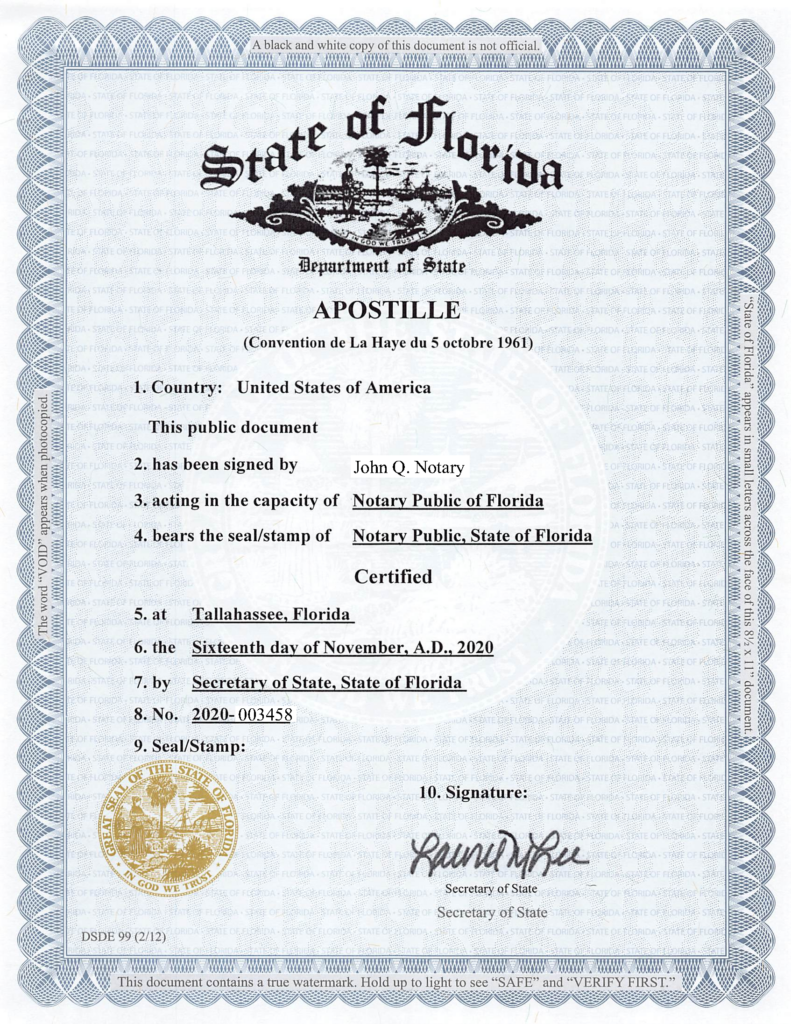Reliable Houston Apostille Solutions-- Rapid and Specialist Assistance
Reliable Houston Apostille Solutions-- Rapid and Specialist Assistance
Blog Article
Recognizing the Apostille Refine: A Comprehensive Guide to International Paper Authentication
Browsing the complex landscape of international paper authentication can be discouraging without a clear understanding of the apostille process. This overview carefully describes the essential actions, from identifying which documents call for qualification to sending them for confirmation by the Competent Authority. Understanding the importance of an apostille and recognizing potential mistakes, such as insufficient submissions and language barriers, can dramatically streamline the verification journey. What specifically specifies an apostille, and why is it so critical for papers predestined for Hague Convention nations? These inquiries develop the foundation of our exploration into this necessary lawful procedure.
What Is an Apostille?
An apostille is a main qualification that validates the authenticity of a record for use in one more nation. This qualification, provided by a marked authority in the country where the document originated, guarantees that the file is acknowledged as valid and reputable in the worldwide sector. The process of obtaining an apostille entails a number of steps, including the verification of the paper's signatures, seals, and stamps by suitable governmental bodies.
The apostille acts as a globally acknowledged form of authentication, enabled by the Hague Convention of 1961. This treaty, officially called the Hague Convention Abolishing the Need of Legalisation for Foreign Public Records, standardizes the process of record certification amongst member nations. The apostille itself is a standardized certification that has details details, such as the releasing authority, the native land, and the day of issuance.
It is necessary to keep in mind that not all records are eligible for an apostille. Typically, public documents like birth certifications, marriage licenses, court orders, and educational diplomas get approved for this qualification. Exclusive records, such as contracts and agreements, may require registration and additional actions to certify.
Value of Apostille
Comprehending what an apostille is establishes the stage for appreciating its value in global negotiations. houston tx apostille. An apostille, essentially a form of certification released by an assigned authority, validates the credibility of a record for use in international nations that are signatures to the Hague Apostille Convention. This standard procedure removes the requirement for further legalisation by embassies or consulates, therefore improving worldwide transactions
It guarantees the reliability and approval of essential documents-- such as birth certifications, marriage licenses, and academic diplomas-- throughout borders. For services, it assists in the smooth conduct of worldwide profession, mergers, and read what he said acquisitions by providing a trusted approach of record confirmation.
In addition, an apostille boosts lawful protection and conformity. Federal governments and organizations can confidently rely upon the authenticity of files bearing an apostille, mitigating the threat of scams and misstatement. Thus, the apostille functions as a crucial device in advertising global collaboration and trust. Its duty in cultivating effective and protected worldwide transactions emphasizes its crucial worth in today's interconnected globe.
Records That Need Apostille
When taking part in international deals or lawful issues, details files often require the verification offered by an apostille. This guarantees their recognition and acceptance in nations that are signatories to the Hague Apostille Convention. Typically, individual records such as copyright, marital relationship certifications, and death certificates need an apostille, especially when they are utilized for procedures check this site out like migration, marriage abroad, or international probate matters.
Educational papers are another classification regularly calling for apostilles. Diplomas, transcripts, and academic records commonly need this authentication for purposes such as going after additional education and learning, work, or professional licensing in a foreign country (houston tx apostille). This step assures that the records are acknowledged as reputable and legitimate
Lawful records, consisting of powers of lawyer, affidavits, and court orders, likewise frequently demand apostilles. Organization records such as certifications of unification, bylaws, and commercial contracts may require an apostille to promote worldwide trade, establish international branches, or involve in cross-border lawful process.
Actions to Get an Apostille

Acquiring an apostille involves a multi-step process that guarantees the credibility and acceptance of your files in foreign countries. The first action is identifying which records require an apostille. houston tx apostille. Typical papers include copyright, marital relationship licenses, scholastic records, and business files
When identified, the record should be accredited by the ideal issuing authority. After qualification, the paper should be sent to the designated Competent Authority in the document's country of origin.
The submission process normally requires a completed application, the initial file, and a cost. Some jurisdictions might offer the alternative of expedited processing for an extra fee. Upon successful confirmation, find out here the Competent Authority will affix the apostille certificate to the record, thus validating its authenticity.
Typical Obstacles and Solutions
Browsing the apostille process can provide numerous usual obstacles that, if not properly dealt with, may delay or complicate record verification. Each nation has details requirements for the types of documents that can be apostilled, and any type of deviation from these can result in being rejected.
One more typical difficulty is comprehending the different processing times. Processing times can differ substantially in between countries and even between different regions within the exact same country. It is important to represent these variations when planning the apostille process to avoid unexpected hold-ups.
In addition, language obstacles can position considerable barriers. Records in an international language commonly need licensed translations, and any errors in translation can lead to further complications. Involving an expert translation service can mitigate this threat.

Conclusion
Mastering the apostille procedure considerably boosts the performance of worldwide record authentication. By understanding the necessity of recognizing and certifying needed documents, and browsing the entry to the Competent Authority, the process comes to be more workable.
Report this page